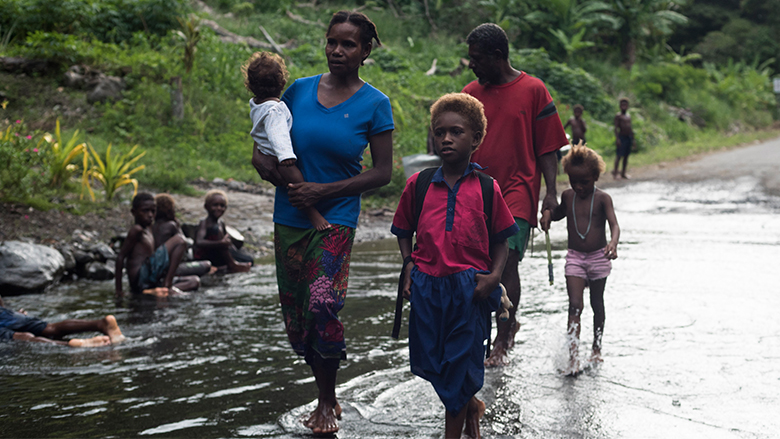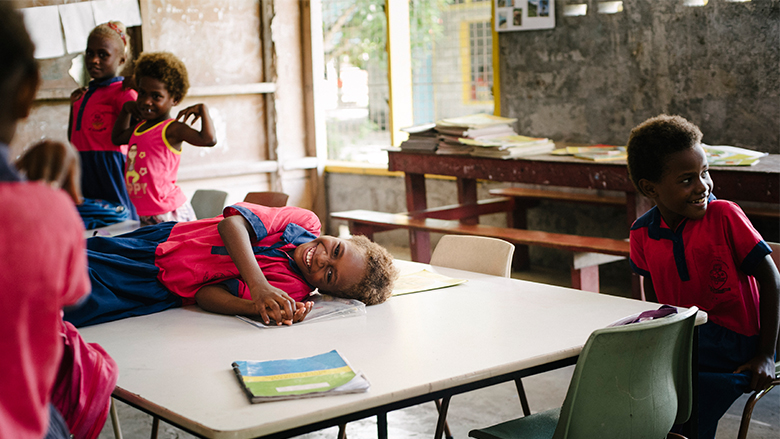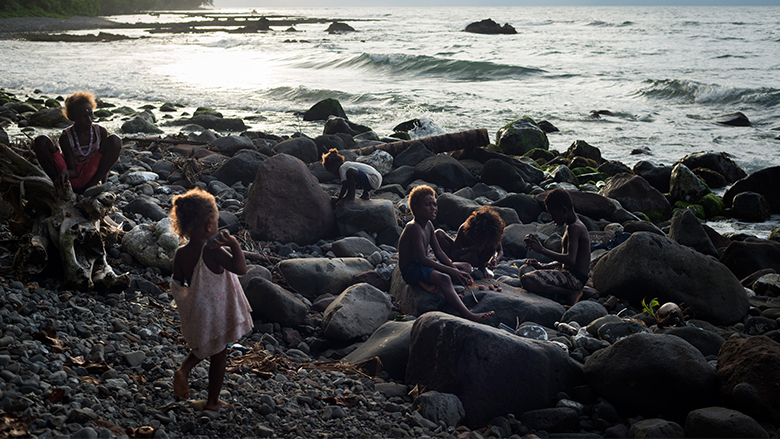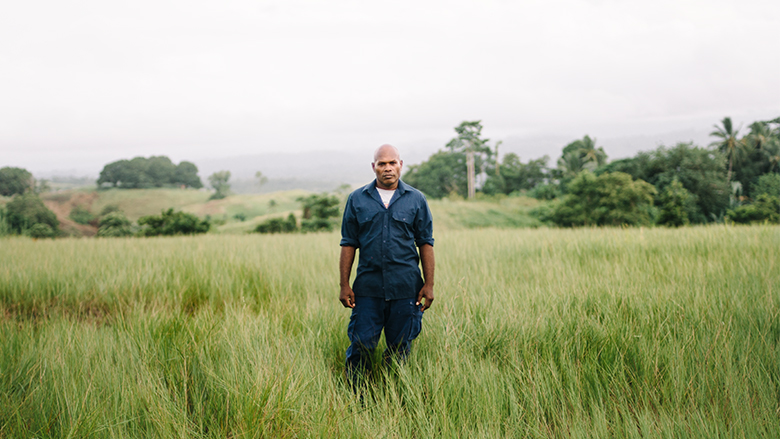Bernadette Tahiseu lives with her husband and nine children, along with four infant grandchildren, in a single thatched hut with walls made of tarpaulin and dried palm leaves.
At 43, she and her husband Luke are both uneducated and unemployed, lacking money to rebuild their former cement house in a small seaside village on the northern coast of Guadalcanal in the Solomon Islands.
They live off food they grow, such as sweet potatoes and cassava, and sometimes plant watermelon and cucumbers to sell for money. Most days, all they can provide is one meal for the family.
Despite such hardship, it’s better than during The Tensions, the five-year period of ethnic conflict between militants from the islands of Guadalcanal and Malaita. Bernadette is from the Guadalcanal ethnic group while Luke is part-Malaitan, which put them at particular risk during the violence that engulfed the Solomons between 1998 and 2003.
“When conflict broke out, all the people in the village fled into the bush,” Bernadette recalled, describing makeshift shelters of leaves and sticks with no food except what they could find or grow.
“We stayed there for couple years,” she said. “We were really frightened, terrified. … Some days we couldn’t cook because we heard gunfire. We just stayed hidden. I found it very hard because I had a small child and life in the bush is tough. All I thought about was just to get food, eat a bit, feed my child and then sleep.”
Their former house burned down in the unrest, but any money they can get today goes for more immediate needs – clothing, food and school fees.
It has been 13 years since an international intervention ended The Tensions, but families like Bernadette’s still feel the impact of conflict. Despite primary school fees of 50 Solomon Island dollars (equivalent to $6.43 U.S.), Bernadette and Luke can only afford to send their secondary-age children.
In March, an aunt provided money for Evangeliza, age 9, to attend school for the first time. Until then, she had been kept at home to look after her younger sister, nieces, and nephews. In her first week of school, the girl learned how to write about things in the sea — fish, turtles and whales.




